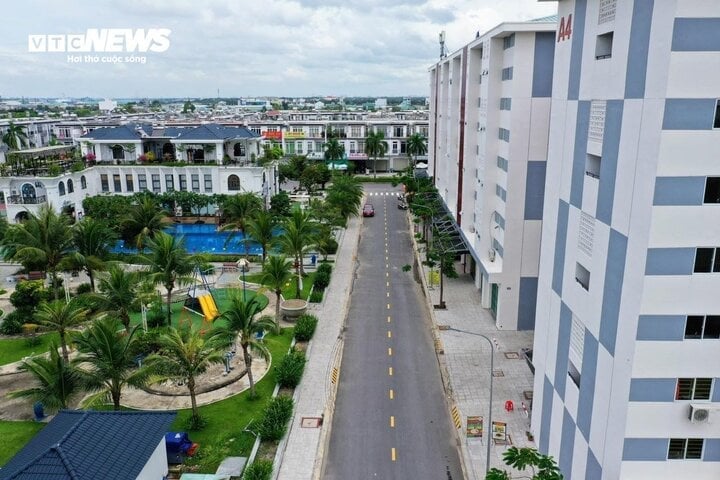This was stated by HoREA in a report sent to the Ho Chi Minh City National Assembly Delegation on fiscal and monetary policies to support the socio-economic recovery and development program.
According to HoREA, the policy of "reducing the value-added tax rate by 2% in 2022, applied to groups of goods and services currently subject to the value-added tax rate of 10% (to 8%)" does not apply to a number of production and business sectors, including real estate business.
Therefore, real estate businesses have not enjoyed the 2% reduction in value added tax rates in 2022-2023.

Many monetary and fiscal policies have not benefited real estate businesses. (Illustration photo)
Also according to HoREA, the program "interest rate support (2%/year) maximum 40 trillion VND" has had very low implementation results, up to now only disbursed about 875 billion VND, reaching a rate of about 2.3% due to many limitations and inadequacies.
This program only applies to some important industries and fields, enterprises, cooperatives, and business households that are able to repay debts and recover; loans for renovating old apartments, building social housing, houses for workers to buy, rent, and hire-purchase.
Meanwhile, all projects to renovate old apartments, build social housing, houses for workers to buy, rent and hire-purchase are "stuck" due to legal problems.
Enterprises, cooperatives, and business households affected by the COVID-19 pandemic have been exhausted, making it difficult to prove their “ability to repay debts and recover”. In addition, enterprises are afraid of being “post-audited” after receiving the 2% interest rate reduction support, which will affect production and business activities.
In addition, the 2% interest rate reduction policy does not apply to some production and business sectors, including real estate businesses, so the beneficiaries of this policy are narrowed.
Also in this report, HoREA pointed out that the slow decrease in interest rates has caused many businesses to face difficulties. The Government requires “credit institutions to continue to reduce operating costs to strive to reduce lending interest rates by about 0.5% - 1% in 2022 and 2023, especially for priority sectors”.
However, the interest rate reduction has been implemented quite slowly by commercial banks. According to HoREA's observations, banks have only reduced interest rates for new loans by about 1.5-2% compared to early 2023, while old loans still bear quite high interest rates.
Regarding the directive to “continue restructuring debt repayment terms and maintain the debt group”, it was not until 16 months after the National Assembly issued Resolution 43/2022/QH15 that the State Bank issued Circular 02/2023/TT-NHNN “regulating the restructuring of debt repayment terms and maintaining the debt group by credit institutions and foreign bank branches to support customers in difficulty”.
" If issued earlier in 2022, it will have a very positive impact on the economy, businesses, people and investors ," HoREA emphasized.
Ngoc Vy
Source






































































































Comment (0)